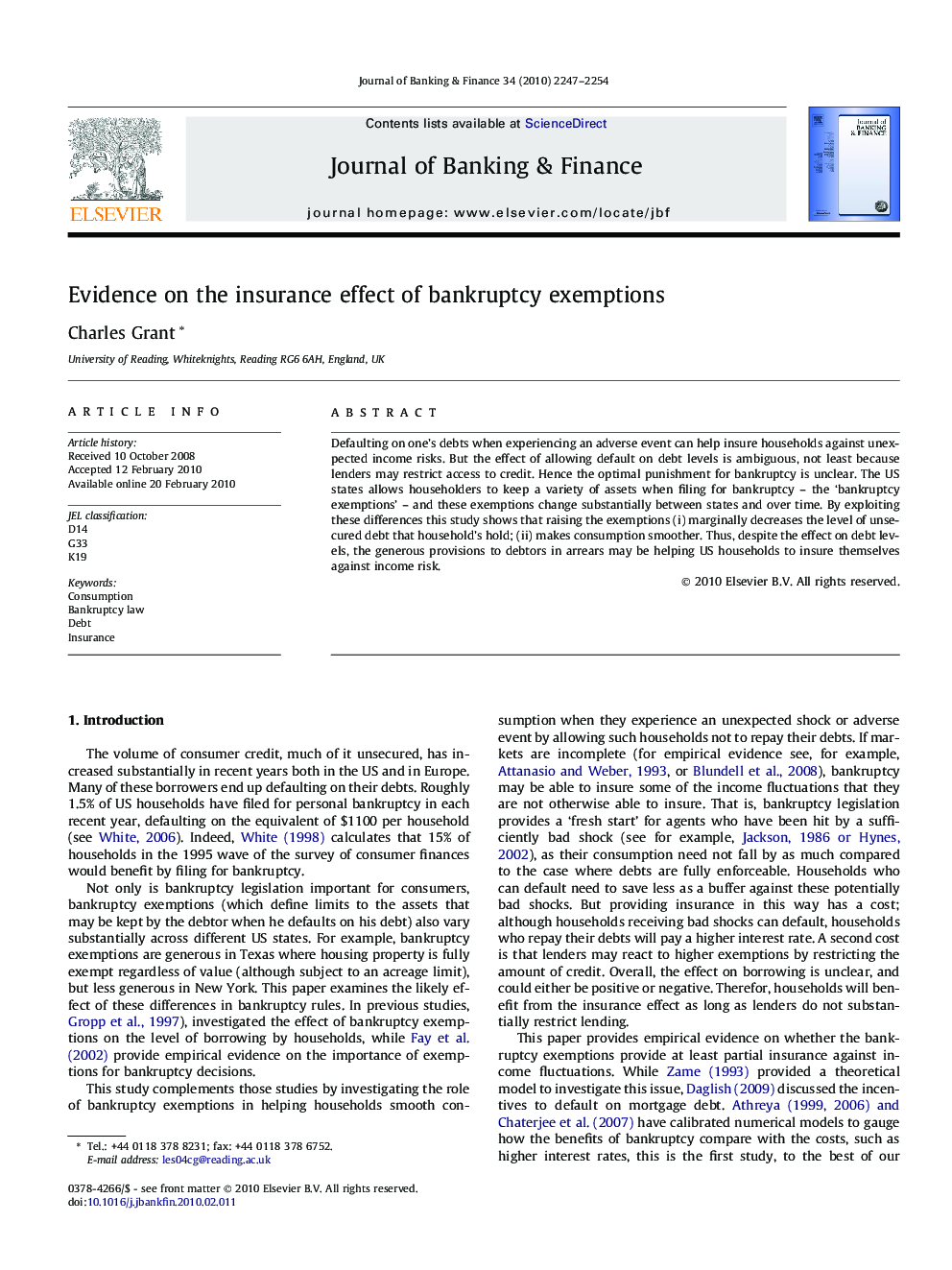| Article ID | Journal | Published Year | Pages | File Type |
|---|---|---|---|---|
| 5090392 | Journal of Banking & Finance | 2010 | 8 Pages |
Abstract
Defaulting on one's debts when experiencing an adverse event can help insure households against unexpected income risks. But the effect of allowing default on debt levels is ambiguous, not least because lenders may restrict access to credit. Hence the optimal punishment for bankruptcy is unclear. The US states allows householders to keep a variety of assets when filing for bankruptcy - the 'bankruptcy exemptions' - and these exemptions change substantially between states and over time. By exploiting these differences this study shows that raising the exemptions (i) marginally decreases the level of unsecured debt that household's hold; (ii) makes consumption smoother. Thus, despite the effect on debt levels, the generous provisions to debtors in arrears may be helping US households to insure themselves against income risk.
Related Topics
Social Sciences and Humanities
Economics, Econometrics and Finance
Economics and Econometrics
Authors
Charles Grant,
